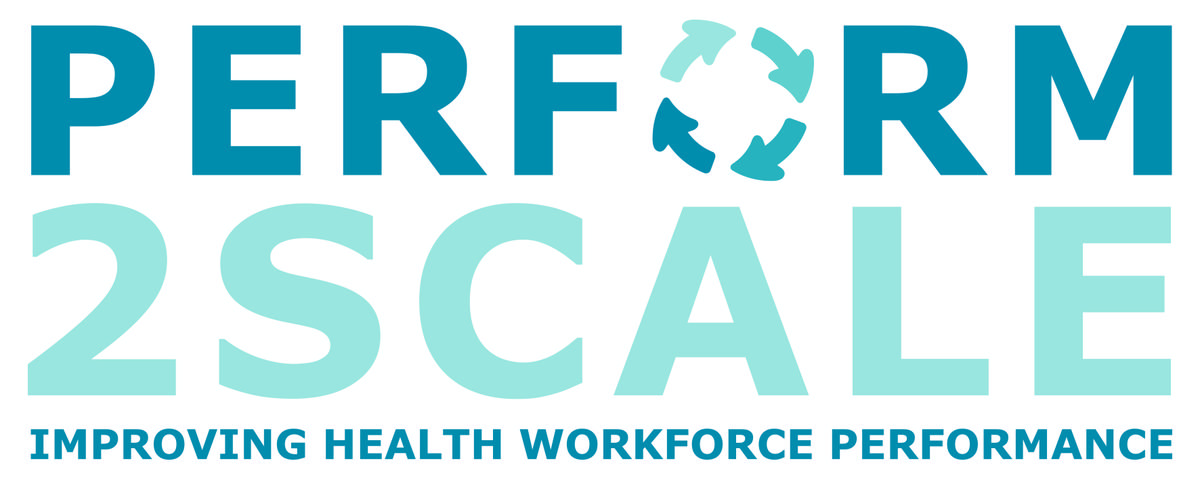
The new challenge in global health is to achieve Universal Health Care (UHC) by 2030. Having an adequate workforce in states’ health systems is critical to achieving UHC.
But while efforts are in place to scale up the numbers of health workers, improving health workforce performance is equally important as the quantity of health workers, and very challenging to address.
Working at district management level
Workforce performance improvement can be achieved better at management levels close to frontline workers. The PERFORM project developed a problem-based management strengthening intervention for management teams at district level in three African countries, to improve health workforce performance and service delivery more generally. The evaluation of the management strengthening intervention demonstrated its effectiveness in enabling the management teams to solve workforce performance and other problems locally, improving service delivery and helping them become better managers.
To have a wider impact and thus contribute to the achievement of UHC, the PERFORM2Scale project is developing and evaluating a sustainable approach to scaling up a district level management strengthening intervention in different and changing contexts. This is taking place in Ghana, Malawi and Uganda, and a validated framework and strategy for scaling up the intervention will be produced to enable other countries to use and adapt the scale-up tools, to improve workforce performance and service delivery at district level. The successful use of the management strengthening intervention at scale will make a significant contribution to these countries to achieve UHC.
Our objectives
The overall aim of the PERFORM2scale project is to develop and evaluate a sustainable approach to scaling up a district level management strengthening intervention in different and changing contexts. To achieve this aim the project has the following research and enabling objectives:
- To develop a framework and strategy for scaling up the management strengthening intervention.
- To implement and validate the framework and strategy for scaling up the management strengthening intervention.
- To identify the facilitators and barriers to scale-up of the management strengthening intervention in different and changing contexts.
- To identify the costs and effects of scaling up the management strengthening intervention.
- To develop the individual and institutional capacity at regional and national levels to implement and sustain the use of the scaling up framework and strategy
- To ensure engagement of stakeholders and institutions needed to implement and sustain the scale-up of the intervention
- To provide ongoing communication for and about the scale-up process and to disseminate the validated framework and strategy for scaling up the management strengthening intervention.
Partners and implementation
The project is being implemented by seven partners – three African and four European – under the leadership of the Liverpool School of Tropical Medicine. These partners are:
Liverpool School of Tropical Medicine (LSTM)
School of Public Health, University of Ghana (SPHG)
REACH Trust, Malawi
Makerere School of Public Health (MUSPH)
Swiss Tropical and Public Health Institute (Swiss TPH)
Royal Tropical Institute (KIT), Amsterdam
Centre for Global Health, Trinity College, Dublin





